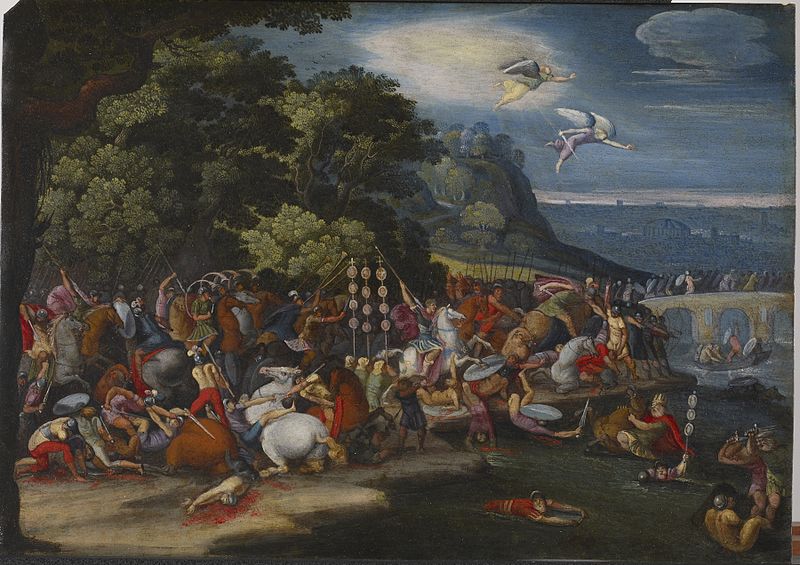This article delves into notable historical events that occurred on March 7th, showcasing their significance across various domains such as politics, technology, science, and social justice.
From Constantine I’s establishment of Sunday as a day of rest in 321, to the 2009 launch of NASA’s Kepler space observatory, each event underlines pivotal moments that have shaped global history.
This concise overview not only highlights technological and political milestones but also underscores humanity’s relentless pursuit of progress and justice, offering a reflective glance at our past’s impact on the present and future.
March 7th Events in History
321 – Roman Emperor Constantine I decrees that the dies Solis Invicti (sun-day) is the day of rest in the Empire
On March 7, 321, Roman Emperor Constantine I made a significant decree that Sunday (dies Solis Invicti, meaning “day of the invincible sun”) would be observed as the Empire’s official day of rest.
This decree was revolutionary because it officially aligned the Roman week with the Christian practice of observing Sunday, the day of Jesus Christ’s resurrection, as a day of worship and rest.
Also Read: March 6 – On this Day in History
It also reflected the syncretism of Christian and pagan traditions, as Sunday was dedicated to the worship of the Sun God in various pagan religions.
Constantine’s decree mandated that all courts, towns, and workshops would be at rest on Sunday, except for those engaged in agricultural work.

1277 – Stephen Tempier, bishop of Paris, condemns 219 philosophical and theological theses
On March 7, 1277, Stephen Tempier, the Bishop of Paris, issued a condemnation of 219 philosophical and theological theses that were being taught at the University of Paris. This act was part of a broader medieval conflict between faith and reason.
Tempier’s condemnation targeted various aspects of Aristotelian philosophy and its advocates, arguing that they were incompatible with Christian doctrine.
Also Read: March 8th Events in History
This event had a profound impact on the intellectual landscape of the Middle Ages, leading to a reevaluation of the relationship between philosophy and theology.
1573 – A peace treaty is signed between the Ottoman Empire and the Republic of Venice, ending the Ottoman-Venetian War
The peace treaty signed on March 7, 1573, ended the Fourth Ottoman-Venetian War (1570–1573), a conflict primarily fought over control of Cyprus. The war had been costly for both sides, and the treaty reflected a compromise.
Venice relinquished its claim to Cyprus, which remained under Ottoman control, but gained concessions that restored some of its trading privileges in the Eastern Mediterranean.
This treaty marked a significant moment in the decline of Venice as a maritime power and the consolidation of Ottoman dominance in the region.
1778 – Captain James Cook sights Oregon coast, at Yaquina Bay
On March 7, 1778, during his third Pacific expedition, British explorer Captain James Cook sighted the Oregon coast near present-day Yaquina Bay. This was part of his attempt to discover the Northwest Passage, a sea route connecting the Atlantic and Pacific Oceans through the Arctic Ocean.
Cook’s exploration of the Pacific Northwest coast of North America contributed significantly to European knowledge of the region, although he did not succeed in finding the Northwest Passage. His detailed maps and observations were invaluable for future explorers and traders.
1814 – Emperor Napoleon I of France wins the Battle of Craonne
The Battle of Craonne took place on March 7, 1814, during the War of the Sixth Coalition against Napoleon I of France. Fought near the village of Craonne in northeastern France, Napoleon’s forces achieved a tactical victory against the Russian and Prussian armies commanded by General Blücher.
Despite being outnumbered and facing significant challenges, Napoleon demonstrated his tactical brilliance by effectively using the terrain to his advantage.
However, the victory at Craonne did not significantly change the strategic situation in favor of the French, as Napoleon was increasingly pressed from multiple fronts, leading to his first abdication just over a month later.

1876 – Alexander Graham Bell is granted a patent for an invention he calls the telephone
On March 7, 1876, Alexander Graham Bell was granted U.S. patent number 174,465 for his invention of the telephone, a device that could transmit vocal or other sounds telegraphically.
This breakthrough came after years of experimentation and work on methods of transmitting sound, particularly speech, over wires.
Bell’s patent covered “the method of, and apparatus for, transmitting vocal or other sounds telegraphically…by causing electrical undulations, similar in form to the vibrations of the air accompanying the said vocal or other sound.”
The invention of the telephone revolutionized communication, transitioning from manual transmission of messages to instantaneous voice communication over long distances.
1912 – Roald Amundsen announces that his expedition had reached the South Pole on December 14, 1911
Norwegian explorer Roald Amundsen publicly announced on March 7, 1912, that his expedition had reached the South Pole on December 14, 1911. This announcement confirmed Amundsen’s place in history as the leader of the first expedition to reach the South Pole, beating the British team led by Robert Falcon Scott.
Amundsen’s success was attributed to careful planning, the use of sled dogs, and his choice of a better route. The achievement was a significant moment in the era of Antarctic exploration, highlighting the extreme challenges of polar exploration and the intense national rivalries involved in early 20th-century exploratory missions.
1936 – Adolf Hitler orders German troops to march into the Rhineland, violating the Treaty of Versailles
In a direct violation of the Treaty of Versailles and the Locarno Treaties, Adolf Hitler ordered German military forces to reoccupy the Rhineland on March 7, 1936. This region had been demilitarized after World War I to serve as a buffer zone between Germany and France.
Hitler’s gamble was that the French would not react militarily due to the political climate, and he was correct. The remilitarization of the Rhineland was a critical step in Nazi Germany’s aggressive expansionist policies and was met with only mild responses from other European powers, emboldening Hitler’s regime. It marked a significant failure of the League of Nations and the appeasement policy.

1945 – During World War II, American forces cross the Rhine River at Remagen, Germany
On March 7, 1945, during the final stages of World War II in Europe, American forces captured the Ludendorff Bridge at Remagen and crossed the Rhine River, a significant strategic barrier.
The unexpected capture of an intact bridge allowed thousands of American troops to cross into Germany’s heartland, facilitating the Allied advance.
This event is notable because the Rhine had been considered a formidable natural defense for Germany. The successful crossing at Remagen enabled the Allies to encircle the Ruhr, Germany’s industrial heartland, hastening the end of the war in Europe.
1951 – Iranian oil industry is nationalized
The Iranian oil industry was nationalized on March 7, 1951, following the passage of legislation by Iran’s Majlis (parliament) and later confirmed by the Senate. This move, championed by Prime Minister Mohammad Mossadegh, aimed to end the British-controlled Anglo-Iranian Oil Company’s (AIOC) monopoly on Iranian oil.
Nationalization was a response to long-standing grievances over the unequal sharing of oil revenues and was a pivotal moment in the struggle for control over Middle Eastern oil resources.
It led to a significant international crisis, including a British-led embargo and a coup d’état in 1953, orchestrated by the British and American intelligence agencies to restore their access to Iranian oil and strengthen their geopolitical influence in the region.
1965 – Bloody Sunday: A group of 600 civil rights marchers are forcefully broken up in Selma, Alabama
On March 7, 1965, a pivotal event in the American civil rights movement occurred, known as “Bloody Sunday,” when around 600 civil rights marchers were violently confronted by local law enforcement and white vigilante groups as they attempted to march from Selina to Montgomery, Alabama.
The marchers, advocating for African American voting rights and led by figures such as John Lewis and Hosea Williams, were met on the Edmund Pettus Bridge in Selma by police equipped with billy clubs and tear gas.
The brutal beatings and the subsequent media coverage galvanized national outrage, contributing significantly to the passage of the Voting Rights Act of 1965, a landmark piece of federal legislation that aimed to eliminate legal barriers at the state and local levels that prevented African Americans from exercising their right to vote.
1971 – Sheikh Mujibur Rahman delivers a historic speech at the Racecourse Field in Dhaka, Bangladesh, effectively igniting the Bangladesh Liberation War
On March 7, 1971, Sheikh Mujibur Rahman, the leader of the Awami League and a key figure in the Bengali nationalist movement, delivered a momentous speech to a massive crowd at the Racecourse Field in Dhaka, East Pakistan (now Bangladesh).
Amid escalating tensions between East and West Pakistan, Rahman’s speech effectively laid the groundwork for the Bangladesh Liberation War.
He called for civil disobedience and preparedness to fight for independence, under the slogan “The struggle this time is for our freedom. The struggle this time is for our independence.” This speech is considered one of the most influential in Bengali history, directly leading to the declaration of Bangladesh’s independence later that month.
1985 – The song “We Are the World” receives its international release
“We Are the World,” a charity single originally recorded by the supergroup USA for Africa in 1985, received its international release on March 7. Written by Michael Jackson and Lionel Richie, and produced by Quincy Jones, the song was aimed at raising funds for famine relief in Ethiopia.
Featuring an ensemble of leading music artists of the time, it became a symbol of the music industry’s ability to come together for a humanitarian cause.
The song was a commercial success, raising millions of dollars for famine relief and winning several awards, including three Grammys. Its release marked a significant moment in pop culture and philanthropy.
1989 – Iran and the United Kingdom break diplomatic relations after a dispute over Salman Rushdie and his controversial novel
Diplomatic relations between Iran and the United Kingdom were severed on March 7, 1989, following a dispute over Salman Rushdie and his novel “The Satanic Verses.” The novel had been deemed blasphemous by many Muslims around the world, including Iran’s Supreme Leader, Ayatollah Khomeini, who issued a fatwa (religious decree) calling for Rushdie’s assassination.
The UK’s insistence on protecting Rushdie’s freedom of expression, combined with Iran’s refusal to withdraw the fatwa, led to a significant diplomatic rift. The incident underscored the tension between freedom of speech and respect for religious beliefs, and had long-lasting effects on the relationship between Iran and Western countries.
1994 – The U.S. Supreme Court rules that parodies of an original work are generally covered by the doctrine of fair use
On March 7, 1994, the United States Supreme Court ruled in the case of Campbell v. Acuff-Rose Music, Inc., that the commercial parody of Roy Orbison’s song, “Oh, Pretty Woman,” by the rap group 2 Live Crew was protected under the doctrine of fair use.
This landmark decision clarified the legal boundaries of copyright law, especially regarding the use of copyrighted material for parody purposes.
The ruling held that a commercial parody could qualify as fair use, a significant victory for content creators and a pivotal moment in copyright law. The decision has since influenced how copyright is interpreted in relation to parody and satire.
2005 – A car bomb explodes in Doha, Qatar, killing one person and injuring 12 others
On March 7, 2005, a car bomb exploded in the parking lot of the Doha Players Theater in Doha, Qatar, killing one British national and injuring twelve others. This rare act of violence in the typically peaceful Gulf state was particularly shocking.
The attack targeted a theater known for its expatriate community involvement, highlighting the vulnerabilities even in nations considered relatively safe from terrorism.
The bombing was later attributed to an Egyptian national who was reportedly acting out of personal motivations rather than as part of a larger terrorist network. This incident underscored the global reach of terrorism and the challenges of ensuring security in a rapidly globalizing world.
2009 – The Kepler space observatory, designed to discover Earth-like planets orbiting other stars, is launched
The Kepler space observatory was launched by NASA on March 7, 2009, aboard a Delta II rocket from Cape Canaveral Air Force Station. This mission, named after the Renaissance astronomer Johannes Kepler, was designed to explore the Milky Way galaxy to discover Earth-size planets orbiting other stars in their habitable zones—regions where liquid water could exist on a planet’s surface, potentially supporting life.
Kepler marked a significant step forward in the search for extraterrestrial life and the understanding of planetary systems. Using the transit method, Kepler successfully identified thousands of exoplanets, vastly expanding our knowledge of the universe’s diversity and complexity.
2011 – The Space Shuttle Discovery makes its final landing after 39 flights
The Space Shuttle Discovery completed its final mission on March 7, 2011, landing at the Kennedy Space Center after 39 flights. As one of the orbiters in NASA’s Space Shuttle program, Discovery became one of the most iconic symbols of human space exploration.
Over its nearly 30-year service, Discovery played a crucial role in numerous scientific missions, satellite deployments, and the International Space Station’s (ISS) construction and resupply.
Its retirement marked the end of an era for the Space Shuttle program, leading to a transition period in U.S. human spaceflight as NASA began to focus on new missions beyond low Earth orbit and fostered partnerships with commercial spaceflight companies.
2013 – The United Nations Security Council approves a fresh round of sanctions against North Korea over its nuclear program
On March 7, 2013, the United Nations Security Council unanimously approved a new round of sanctions against North Korea in response to its third nuclear test conducted on February 12, 2013. These sanctions aimed to put economic and diplomatic pressure on Pyongyang to curb its nuclear and ballistic missile programs.
The resolution tightened financial restrictions, aimed to crack down on North Korea’s attempts to transfer banned technology and materials, and called for the inspection of cargo heading to and from the country.
The sanctions demonstrated the international community’s concern over North Korea’s escalating nuclear capabilities and the challenges of achieving denuclearization through diplomatic means.
2019 – An Ethiopian Airlines Boeing 737 MAX crashes, leading to the worldwide grounding of the aircraft model
On March 7, 2019, Ethiopian Airlines Flight 302, a Boeing 737 MAX, crashed shortly after takeoff from Addis Ababa, Ethiopia, killing all 157 people on board. This tragic event was the second deadly accident involving a Boeing 737 MAX within five months, following the Lion Air Flight 610 crash in Indonesia.
The similarities between the two crashes led to a global grounding of the entire Boeing 737 MAX fleet, raising serious questions about the aircraft’s design and certification processes. Investigations focused on the Maneuvering Characteristics Augmentation System (MCAS), a flight control system designed to enhance the pitch stability of the aircraft.
The aftermath saw Boeing facing intense scrutiny, leading to regulatory reviews, financial losses, and significant changes in aircraft certification procedures worldwide.
